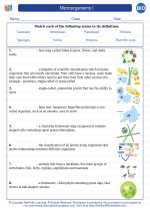Solar Energy
Solar energy is the radiant energy emitted by the sun. It is a renewable and sustainable source of power that can be harnessed and converted into usable forms of energy such as electricity and heat. Solar energy is becoming an increasingly popular and viable alternative to traditional fossil fuels due to its environmental benefits and decreasing cost of solar technologies.
How does solar energy work?
The process of converting solar energy into usable forms of energy involves the use of solar panels, which are made up of photovoltaic cells. When sunlight strikes these cells, it excites electrons in the semiconductor material, creating an electric current. This current can then be harnessed and stored in batteries or used to power electrical devices directly.
Advantages of solar energy
- Renewable and sustainable
- Environmentally friendly - produces no greenhouse gas emissions
- Reduces reliance on fossil fuels
- Low operating costs once installed
- Can be used in remote or off-grid locations
Disadvantages of solar energy
- Intermittent - depends on sunlight availability
- Initial installation cost can be high
- Storage of excess energy can be challenging
- Dependent on geographical location and weather patterns
- Energy production may decrease over time due to panel degradation
Study Guide
To further understand the concept of solar energy, students can explore the following topics:
- The electromagnetic spectrum and the wavelengths of light
- The principles of photovoltaic effect and how solar panels work
- The environmental impact of solar energy compared to fossil fuels
- The economic and social implications of widespread solar energy adoption
- The technological advancements in solar energy and future prospects
Additional hands-on activities or experiments can be conducted to demonstrate the principles of solar energy conversion and its practical applications.
By understanding the principles and applications of solar energy, students can gain a deeper appreciation for sustainable energy sources and contribute to the advancement of renewable energy technologies in the future.
[Solar Energy] Related Worksheets and Study Guides:
.◂Biology Worksheets and Study Guides High School. Microorganisms I
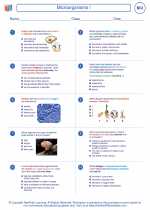
 Worksheet/Answer key
Worksheet/Answer key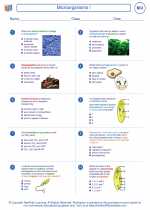
 Worksheet/Answer key
Worksheet/Answer key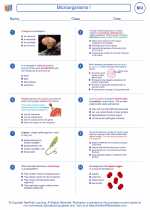
 Worksheet/Answer key
Worksheet/Answer key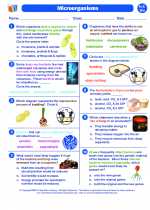
 Vocabulary/Answer key
Vocabulary/Answer key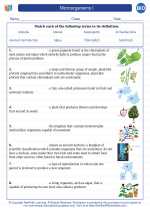
 Vocabulary/Answer key
Vocabulary/Answer key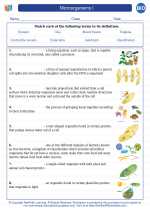
 Vocabulary/Answer key
Vocabulary/Answer key
 Vocabulary/Answer key
Vocabulary/Answer key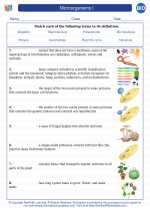
 Vocabulary/Answer key
Vocabulary/Answer key